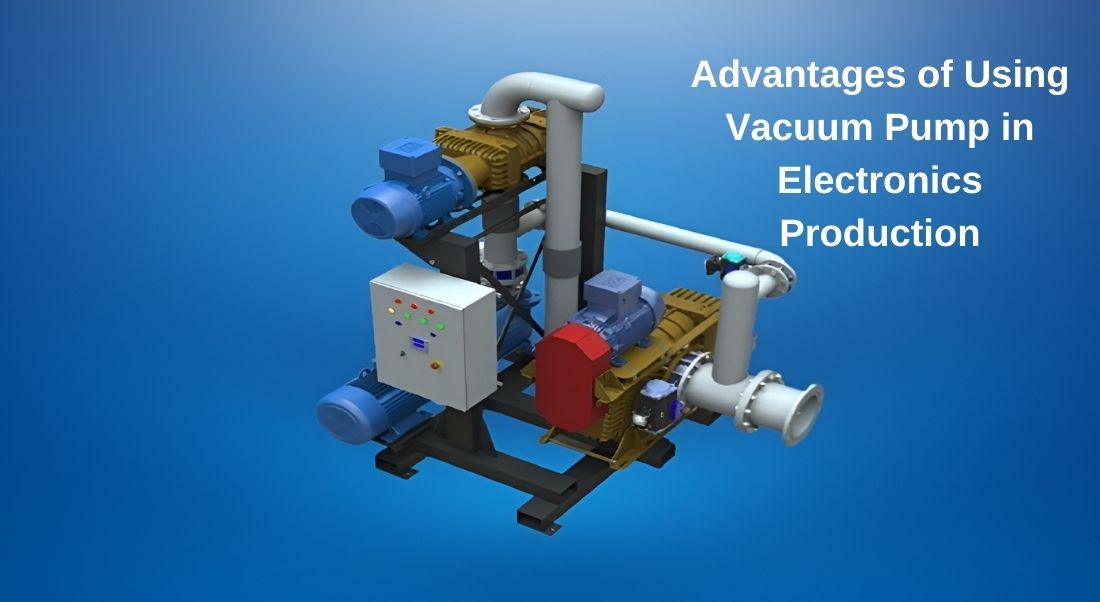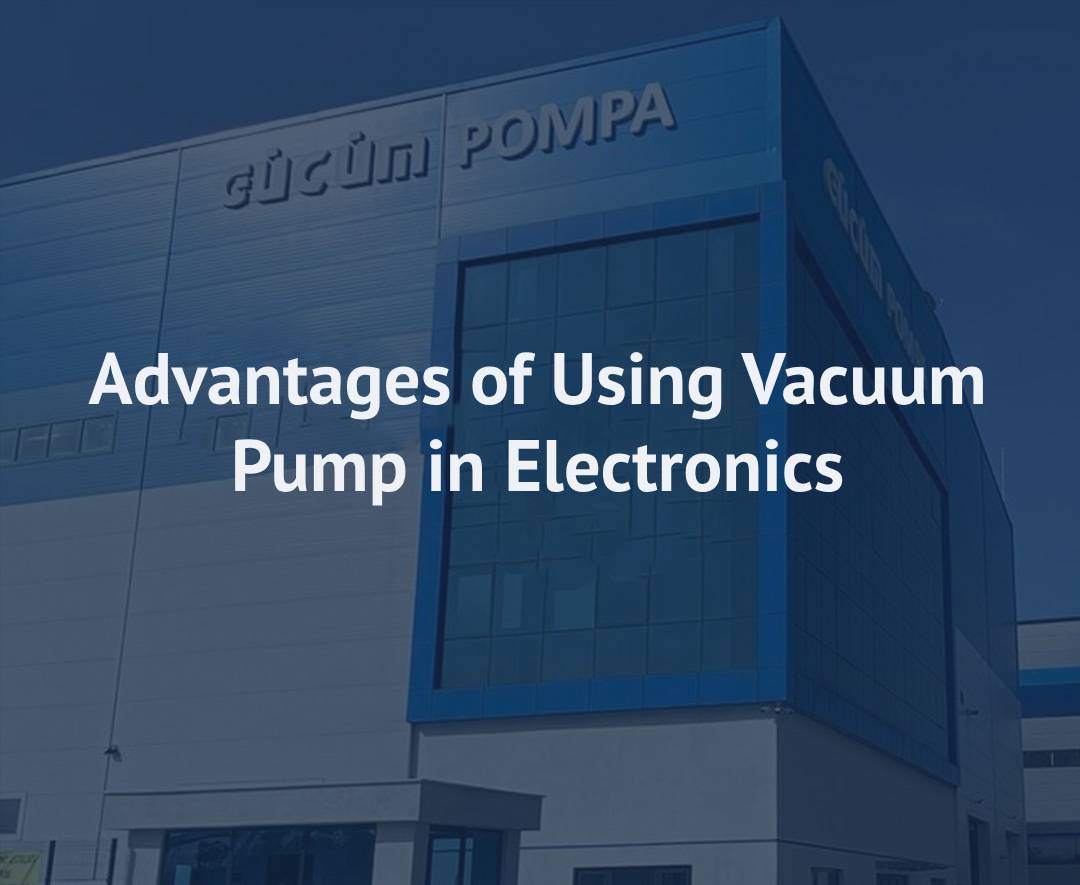Advantages of Using Vacuum Pump in Electronics
Advantages of Using Vacuum Pumps in Electronics Manufacturing
Efficient processes, increased production speed, and improved product quality are essential elements of a successful production line in electronics manufacturing. To achieve these goals, the technologies used are of utmost importance. In this context, vacuum pumps play a critical role in electronics production. This article explores the advantages of using vacuum pumps in electronics manufacturing and their significance in the industry.
What is a Vacuum Pump?
A vacuum pump is a device that creates a low-pressure environment by drawing air or gas from a space. In electronics manufacturing, vacuum pumps are used to make processes more efficient, reduce error rates, and increase energy efficiency. These pumps are critical in various operations such as assembly, packaging, chip placement, and cooling. In electronics production, the use of vacuum pumps is indispensable for enhancing safety, efficiency, and quality in precise manufacturing processes.
Primary Applications of Vacuum Pumps in Electronics Manufacturing
Electronics production consists of processes that require high precision and careful management. Vacuum pumps are widely used in different stages of these processes. Surface Mount Technology (SMT), chip placement, packaging, and soldering are some of the key operations where vacuum systems play a crucial role in ensuring fast, accurate, and safe production. These applications demonstrate the importance of vacuum pumps in industrial electronics manufacturing.
Vacuum Pump Use in Surface Mount Technology (SMT)
Surface Mount Technology (SMT) is the process of placing electronic components on printed circuit boards (PCBs). Vacuum pumps are used in this process to ensure the precise placement of components, especially the smaller components that require high-speed and accurate placement. Vacuum devices help align components properly, minimizing the error margin and enhancing production accuracy in SMT processes.
Vacuum Pump Use in Chip Placement
Another critical step in electronics manufacturing is chip placement. The accuracy of placing chips directly impacts the quality of the final product. Vacuum pumps ensure the proper placement of chips in this process by providing precise handling. Vacuum technology in chip placement machines enables the correct alignment and mounting of chips, which reduces the likelihood of errors and ensures a more reliable product.
Vacuum Pumps in Electronics Packaging
The packaging of electronic products is another crucial stage in manufacturing. Electronic components are often sensitive and need to be protected from exposure to air. Vacuum pumps are used during packaging to remove air and create an airtight seal, ensuring the safety of the components. This process helps to preserve the integrity of the product, especially when electronics need to be stored for extended periods. Vacuum packaging enhances the durability and protection of the products.

Vacuum Pumps in Soldering Processes
Soldering is an essential process in electronics manufacturing. During soldering, vacuum systems are employed to reduce the risk of oxidation and ensure high-quality solder joints. Vacuum technology in soldering also helps maintain temperature control, preventing damage to sensitive components. By using vacuum systems, manufacturers can achieve better results in terms of soldering quality and prevent component damage during the process.
Benefits of Using Vacuum Pumps in Electronics Manufacturing
The use of vacuum pumps in electronics manufacturing provides numerous benefits that help increase efficiency, speed, and product quality. These advantages manifest in various stages of production and improve overall manufacturing outcomes.
High Precision and Accuracy
Vacuum pumps ensure high precision and accuracy in electronics manufacturing. Placing components and assembling them onto PCBs is a delicate process that requires extreme attention to detail. Vacuum systems enable the precise placement of components, reducing the margin of error and increasing the accuracy of the manufacturing process. This leads to more reliable and higher-quality products.
Increased Production Speed and Efficiency
Vacuum pumps accelerate production processes. Electronics manufacturing is time-sensitive, and vacuum systems help complete many processes more quickly. For example, in SMT machines, vacuum technology enables the faster and more accurate placement of components, thus improving production speed. Additionally, vacuum systems help processes proceed at a faster rate, improving the overall efficiency of production and allowing for more products to be produced in a shorter amount of time.
Energy Efficiency and Cost Savings
Vacuum pumps also contribute to energy savings. The use of vacuum systems in electronics manufacturing generally requires less energy because they operate at lower temperatures. This reduces energy consumption and provides significant savings in operational costs. Furthermore, vacuum systems work more efficiently, helping to avoid energy waste. This leads to more environmentally friendly production processes.
Enhanced Product Quality
Vacuum pumps improve the quality of products. When electronic components are processed under vacuum, they are exposed to less heat. This is particularly important for heat-sensitive components, as it prevents thermal damage. Additionally, vacuum processes reduce oxidation and contamination, resulting in higher-quality products. Vacuum pumps help ensure that products are more durable, functional, and reliable.
Safety and Worker Health
Vacuum systems improve safety in electronics manufacturing. Certain processes may release harmful gases or vapors that could pose risks to workers. Vacuum pumps draw these gases out of the environment, ensuring a safer production setting. They also prevent the buildup of explosive gases during certain processes. By maintaining a cleaner and safer workspace, vacuum pumps protect both workers and the overall production environment.
Environmentally Friendly Manufacturing
Vacuum systems support environmentally friendly manufacturing. By reducing energy consumption, vacuum pumps contribute to a greener production process. Additionally, vacuum packaging minimizes material waste and reduces the overall amount of packaging materials used. These eco-friendly practices help manufacturers operate in a more sustainable manner and reduce their environmental impact.
Easy Maintenance and Longevity
Vacuum pumps are known for their low maintenance requirements. In electronics manufacturing, vacuum systems tend to have long lifespans and continue to operate efficiently over time. This significantly reduces maintenance costs. Regular maintenance of these systems ensures minimal downtime, and the need for repairs is infrequent, which helps manufacturers save both time and money.
Flexibility and Versatility
The flexibility of vacuum pumps provides an advantage in electronics manufacturing. Different vacuum systems can be chosen for various stages of production to provide the most suitable solution for each process. Vacuum pumps can be used across a wide range of applications, offering versatility in handling different tasks. This allows manufacturers to customize their processes and improve their overall production line.
